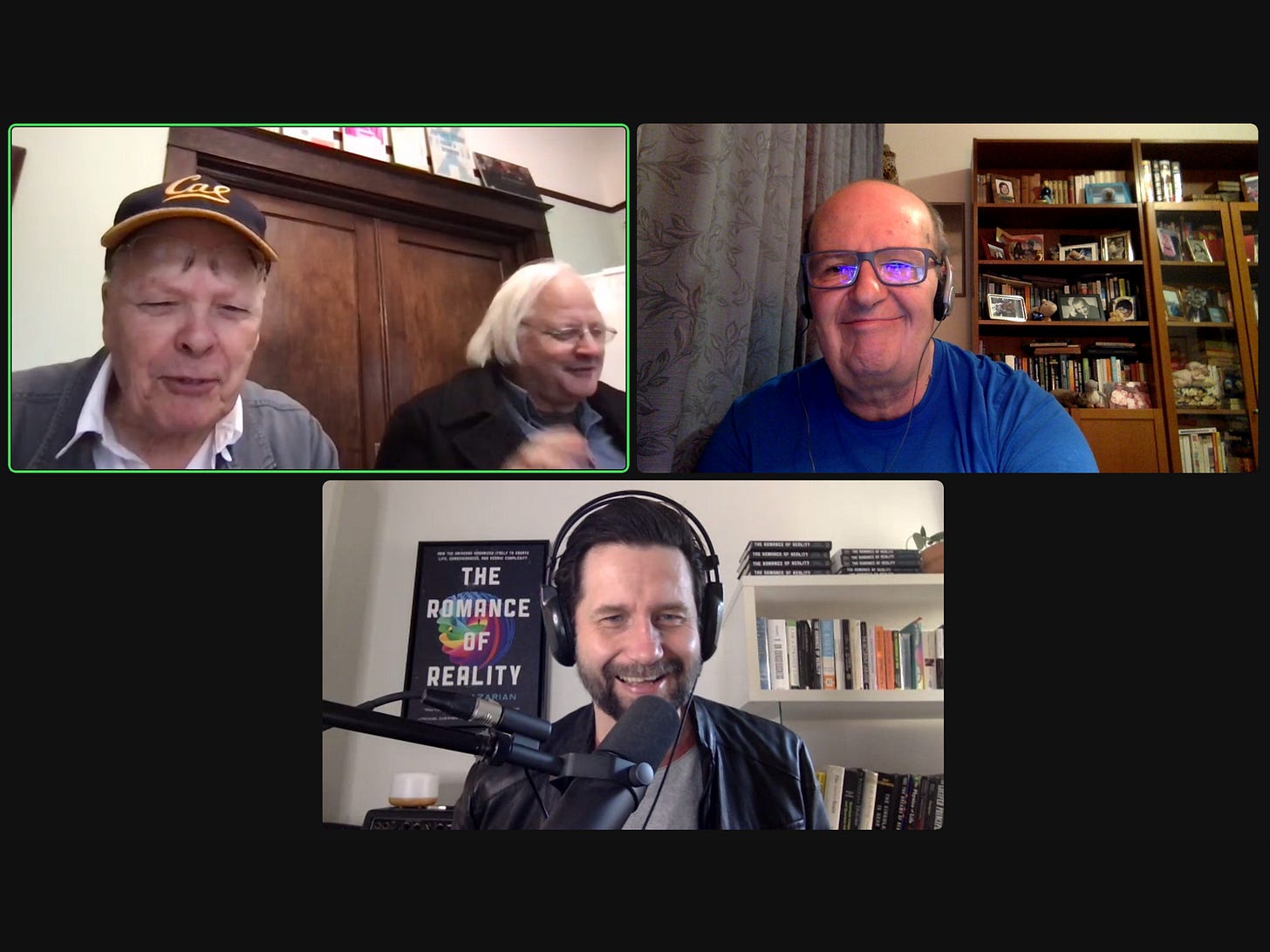This is a conversation with Bobby Azarian, the author of “The Romance of Reality: How the Universe Organizes Itself to Create Life, Consciousness, and Cosmic Complexity” (2022). See my review of Bobby’s book. Bobby produces the Substack newsletter “Road to Omega.”
We were joined by Terry Bristol, the author of “Give Space My Love: An Intellectual Odyssey with Dr. Stephen Hawking” (2016).
This video is also on YouTube, and the audio-only version is in the Turing Church podcast.
These are the questions I had prepared (note that this conversation follows a previous exchange, so read my review of Bobby’s book first):
Schrödinger said that understanding life will require “other laws of physics” to complement the physics we know. You say that other laws of physics favor complexity, life, and consciousness. My first question to you is, are these other laws of physics just incremental improvements to the physics we know today, or an entirely new framework?
In a previous exchange you said that these other laws of physics could be based on “the causal power of information.” Could you say more about this?
Where do you stand on the never ending issue of determinism and/or chance in natural laws?
Note: at this moment I’m thinking all the time about determinism or chance, or determinism and chance, so this was the longest part of the discussion. The global interpretation of determinism promoted by Emily Adlam (I’m writing a review, stay tuned) is, I think, very compatible with Bobby’s ideas.
And what about free will?
This “great cosmic mind at the end of time” that you mention in your book: is it God? God by another name? Or what?
Should humanity expand to the planets and moons of the solar system, and then eventually to the stars? What is the role of space expansion in your worldview?
Here’s a slightly edited version of some points I made in my previous exchange with Bobby. These points, which don’t appear in my review of Bobby’s book, summarize my take:
We don’t understand these things, not yet! I think the Maxwells and Einsteins who will write down the field equations of information haven't been born yet, and their mathematics would be seriously different from today's mathematics.
The laws of fundamental microphysics are not causally closed but probabilistic, and this leaves room for Schrödinger's “other laws of physics” to act independently without inconsistencies. The principle that information has causal power that pulls the universe up toward more and more information and complexity is one of these other laws of physics. We can't say much more than this at this moment, but I'm confident that future science will understand more and more. My hunch is that this will turn out to be very much related to fundamental physics (quantum etc.) and
Gödel. Perhaps the cosmic Mind that will emerge in the far future of the universe acts all over space and time (including here and now) by way of downward/backward causation and self-consistent causal loops in time.
I think our concept of time is too limited. Physics suggests that space and time themselves are emergent phenomena. Time as we know it is one layer of emergence that orders things in a linear sequence of instants stacked on top of one another. But then there is another layer of emergence that orders these sequences in another linear fashion, stacked “on top” of one another in another time-like dimension (yet another multiverse of many worlds/histories). And then more and more layers of emergence and an infinite number of time-like dimensions in a bigger multiverse. The Mind transcends time (a concept found in many authors, especially clear in C.L. Lewis). “After” coming to being somewhere in the multiverse, the Mind exists everywhere in the multiverse (including here and now) and perhaps creates all worlds in an ultimate self consistent loop.



